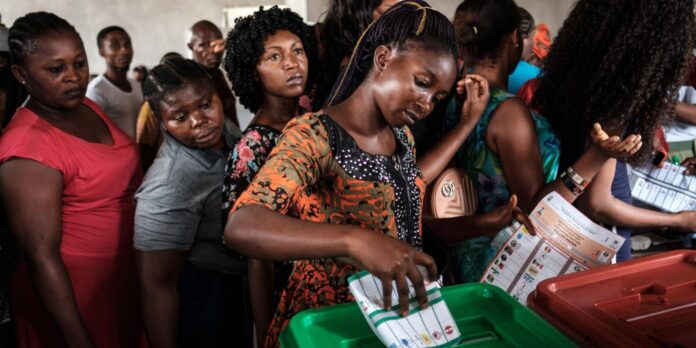By Okechukwu Nwanguma
When Amnesty International released its new report – A Decade of Impunity: Attacks and Unlawful Killings in South-East Nigeria – in Enugu State today, October 7, 2025, it did more than present grim statistics. It held up a mirror to our collective failure. The Southeast is bleeding from the combined violence of state and non-state actors – and the silence of those who should speak has become complicity.
The 90-page report, based on extensive field research across Enugu, Anambra, Imo, Abia, and Ebonyi States, documents gross violations and abuses committed between 2021 and 2024 by both state security forces and armed groups. These include the state-backed paramilitary outfit Ebube Agu, the Nigerian military, and police formations such as the Anti-Kidnapping Units and SARS successor squads – alongside non-state actors such as the Eastern Security Network (ESN), cult groups, “unknown gunmen,” and herders engaged in violent land conflicts.
Between January 2021 and June 2023 alone, Amnesty International estimates that 1,844 people were killed in the Southeast. Communities like Agwa and Izombe in Imo State, and Lilu in Anambra, have become ungoverned spaces – their traditional rulers deposed or killed, residents displaced, and homes destroyed. In many towns across Anambra, cult groups operate unchecked amid a thriving drug trade, killing hundreds in bloody rivalries.
These numbers are not mere data points – they represent sons, daughters, farmers, teachers, students, and traders whose lives were brutally cut short. Each killing deepens the fear and despair that now define daily existence across the Southeast.
Perhaps the most chilling revelation is that the so-called “unknown gunmen” are not unknown at all. As one community member told Amnesty researchers:
“We know the gunmen. They are not unknown gunmen. They are people from our communities.”
The report confirms what human rights monitors have long argued: insecurity in the Southeast is a hybrid of criminal, political, and state violence – a tangled ecosystem of power, profit, and impunity. Yet, both the state and many public commentators persist in reducing this complex crisis to a simplistic IPOB narrative. This convenient framing not only ignores the multiplicity of actors – cults, rogue police units, private militias, criminal syndicates, and herders – but also justifies the government’s indiscriminate and repressive response.
The State’s Answer to Insecurity Has Been More Insecurity
In the name of restoring order, security forces and state-backed militias like Ebube Agu have unleashed terror on civilians – carrying out arbitrary arrests, torture, enforced disappearances, and unlawful killings. The military’s so-called “Operations” – Python Dance, Egwu Eke, and Udo Ka – have left trails of destruction and despair across communities in Imo, Anambra, and Enugu.
The tragic story of Gloria Okolie, a young woman abducted by the Intelligence Response Team (IRT) – which then occupied the notorious Tiger Base in Imo State – remains emblematic of how law enforcement has become indistinguishable from criminality. Gloria was secretly detained, enslaved, and sexually abused for months. Despite clear rulings from both the Federal High Court and the ECOWAS Court awarding her compensation, the Nigerian government continues to flout these judgments – mocking the very notion of justice.
Meanwhile, civilians remain trapped in a deadly triangle: on one side, criminal gangs masquerading as agitators; on another, unaccountable state forces; and in between, a populace abandoned by those meant to defend them. Children are denied education due to violently enforced “sit-at-home” orders. Families pay extortion fees to bury their dead. Women and youths live under constant fear of abduction or reprisal attacks. The Southeast, once a vibrant region of enterprise and scholarship, is fast becoming a graveyard of lost potential and broken spirits.
A Call for Civic Awakening
This is why Amnesty International’s report must not end as another fleeting headline or donor citation. It should mark a turning point – a moral and strategic wake-up call for civil society organizations (CSOs), the Nigerian Bar Association (NBA), and the media in the Southeast.
For too long, civic actors have retreated in fear or fatigue, leaving the space for impunity to expand unchecked. This must end. Southeast CSOs must overcome fragmentation, ego, and donor-driven isolation. They must build a united front – one that defends the rule of law, confronts both state violence and criminality, and reclaims public trust in justice and governance.
The NBA must reassert its constitutional duty to uphold the rule of law – by challenging illegal detentions, representing victims, and compelling obedience to judicial orders. Silence or indifference by the Bar amounts to complicity in tyranny.
The media, too, must reclaim its watchdog role. In an era when misinformation, fear, and propaganda shape public discourse, journalists must courageously amplify the voices of victims, investigate state and non-state abuses, and insist on truth as the pathway to peace.
From Truth to Justice
As Amnesty International rightly recommends, Nigeria must ensure prompt, independent, and transparent investigations into all violations by all actors – state and non-state alike – and provide remedies and reparations to victims. But such change will not happen on its own. It requires collective civic pressure, public outrage, and sustained advocacy.
At RULAAC, we have consistently documented abuses by rogue police units, supported victims in seeking redress, and engaged with authorities on reform and accountability. Yet, one organization or a few voices cannot confront a culture of impunity so deeply entrenched. It will take a coalition – bold, coordinated, and persistent – to reclaim the Southeast from both criminal violence and state repression.
Impunity endures because silence protects it. The Southeast’s conscience – its civil society, its lawyers, its journalists – must now awaken. History will remember whether we chose silence, or stood up to reclaim justice.
Amnesty International’s A Decade of Impunity has spoken truth to power.
Now, the responsibility lies with us – to turn that truth into justice.

